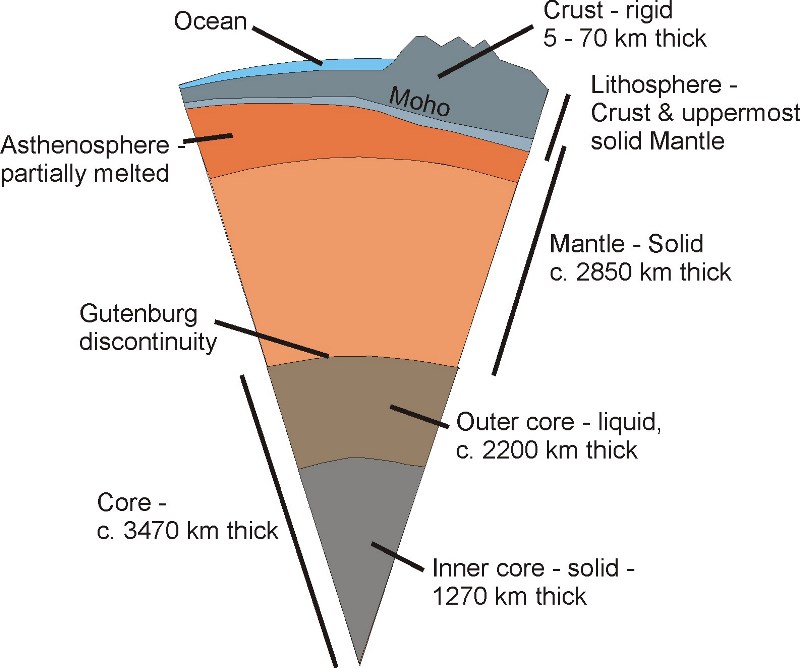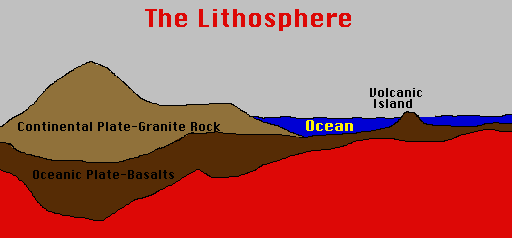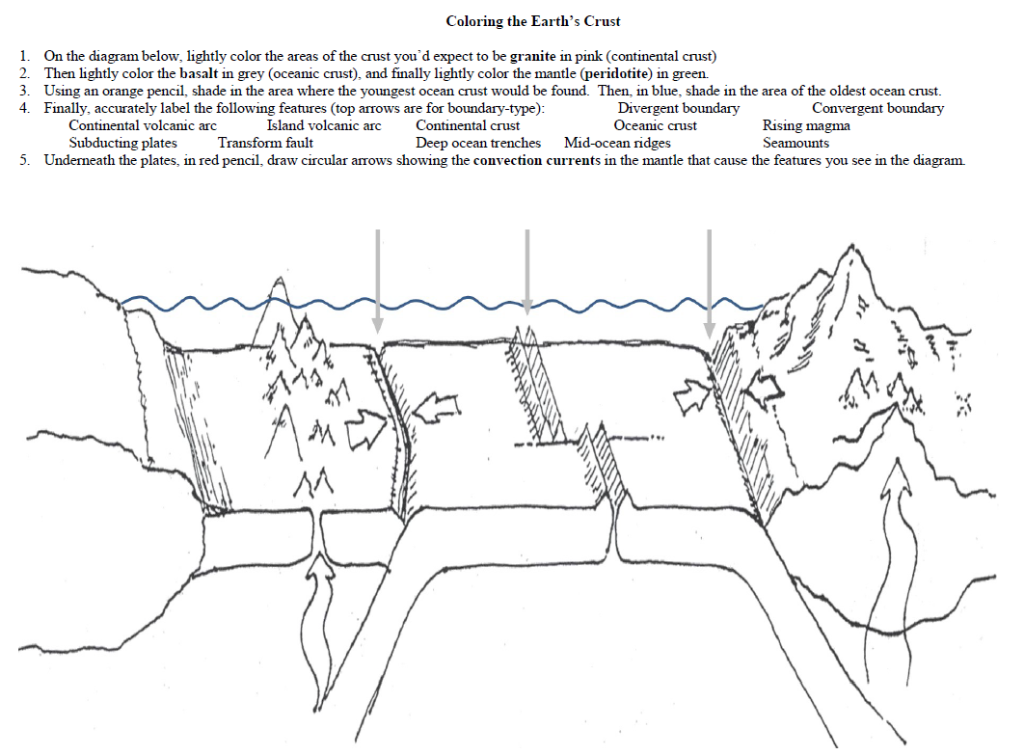30 km 20 mi to 50 km 30 mi thick and mostly composed of less dense more felsic rocks such as granite.
The portion of the earth s crust that primarily contains granite.
What is the crust made of.
In relative terms it s thickness is like that of the skin of an apple.
The answer to this question depends on whether we want to know which chemical elements minerals or rock types it is made of.
Granite coarse or medium grained intrusive igneous rock that is rich in quartz and feldspar.
Isostasy describes the physical chemical and mechanical differences between.
The portion of the earth s crust that primarily contains basalt and is denser than continental crust.
The crust is compositionally distinct outermost rocky layer of the earth.
It amounts to less than half of 1 percent of the planet s total mass but plays a vital role in most of earth s natural cycles.
The crust of earth is of two distinct types.
The earth s crust is an extremely thin layer of rock that makes up the outermost solid shell of our planet.
The portion of the earth s crust that primarily contains granite is less dense than oceanic crust and is 20 50 km thick.
The portion of the earth s crust that primarily contains granite is less dense than oceanic crust and is 20 50 km thick.
The portion of the earth s crust that primarily contains granite is less dense than oceanic crust and is twenty to fifty kilometers thick plate tectonics a process involving the movement of large plates on the earth s mantle.
5 km 3 mi to 10 km 6 mi thick and composed primarily of denser more mafic rocks such as basalt diabase and gabbro.
The portion of earth s crust that primarily contains basalt is relatively dense and is 5 20km thick.
Learn more about the properties and uses of granite in this article.
Earth s layers constantly interact with each other and the crust and upper portion of the mantle are part of a single geologic unit called the lithosphere the lithosphere s depth varies and the mohorovicic discontinuity the moho the boundary between the mantle and crust does not exist at a uniform depth.
Because both continental and oceanic crust are less dense than the mantle below both types of.
It is the most common plutonic rock of the earth s crust forming by the cooling of magma silicate melt at depth.
The portion of the earth s crust that primarily contains granite is less dense than oceanic crust and is 20 50 km thick.










